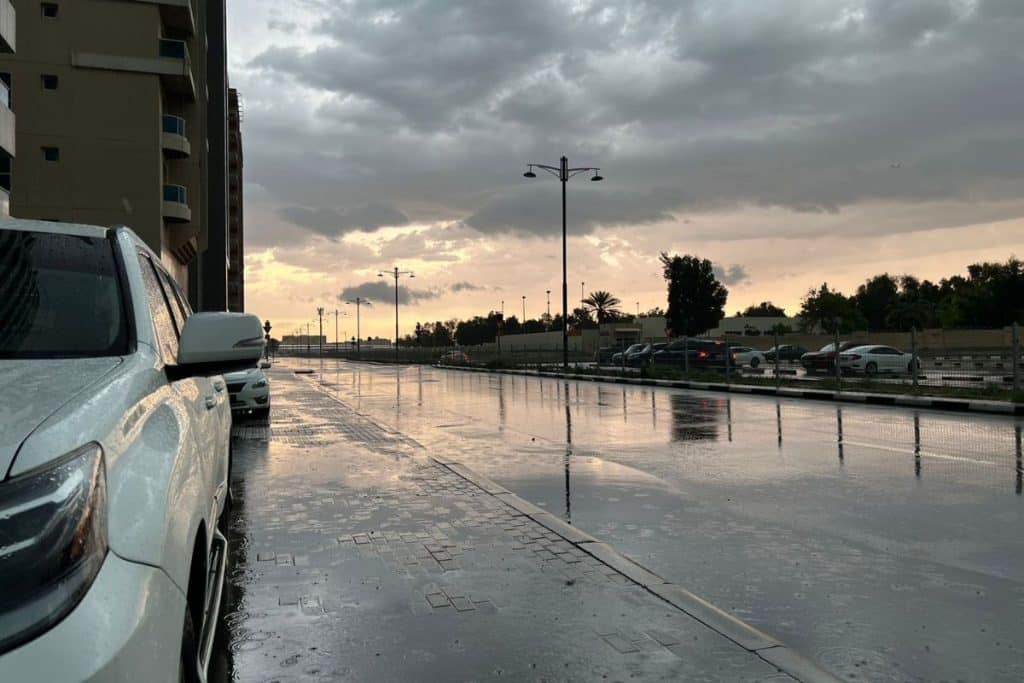Dubai residents must better prepare for heavy rains going forward, experts told Arabian Business, urging people to obtain comprehensive home insurance covering floods and calling on property developers to maintain high construction standards.
Record-breaking downpours brought chaos to the UAE last week, with heavy rains and flooding causing widespread damage to properties and disrupting daily life across the country.
As residents grapple with the aftermath, experts in Dubai’s real estate and insurance sectors are calling for increased preparedness to protect against similar events in the future.
Navigating the fallout
The impact of the torrential rains has been severe, with reports of villas being flooded, valuables lost, and entire neighbourhoods rendered uninhabitable. Many families have been forced to seek temporary shelter in hotels, driving hotel prices up to record levels.
The sheer volume of rainfall in such a short period was unprecedented, exceeding historical records for the region, Atif Rahman, Founder and CEO of Dubai-based real estate developer ORO24, told Arabian Business.
“The UAE has a total land area of 83 billion square metres, and if you consider the average of 20cm rainfall recorded in 12-14 hours, it amounts to 16 billion cubic metres of water and that’s a big volume,” he explained.

Rahman emphasised that no city or community could be built to withstand such extreme weather conditions, and flooding was an inevitable outcome.
“We must acknowledge that the amount of rain that was recorded broke a 75-year record – may be more because data available is that of the period – and Dubai as a city is not built for experiencing heavy monsoon, leave aside such a dramatic natural disaster,” he added.
“We must look at climate action more seriously.”
Assessing the causes
While the rare intensity of the rainfall played a significant role, experts suggest that various factors contributed to the extensive damage.
These include the topography and design of communities, the adequacy of drainage systems, the maintenance of drainage points, and the presence of artificial water bodies like lakes and lagoons.
“The factors which I feel can make the real estate under perform in heavy rain or flood are community masterplans with low lying areas, insufficient drainage system, poor maintenance leading to clogging, low plinth levels, issues in retaining wall in basements, below average or poorly maintained waterproofing etc,” said Rahman.
UAE construction quality in focus
Amidst the chaos, some have questioned the quality of construction materials used in affected properties. However, Rahman dismissed such concerns.

“Let’s just disregard such misleading and irresponsible comments. The build quality in the UAE is generally very high. In fact, many times I feel structure is slightly over-designed and hence that is out of question,” he asserted.
“The authorities and regulators have defined the design and material standards, specially for structure of any asset in the UAE. Every developer [or] contractor has to meet the criteria so this definitely doesn’t apply to the structure of any real estate.”
As the UAE recovers from the ordeal, experts are highlighting the need for regulatory changes and enhanced preparedness measures to mitigate the impact of future extreme weather events.
“I am confident that there will be new provisions made for enhancing performance of real estate in extreme weather conditions to achieve higher benchmarks,” said Rahman, suggesting several potential measures, including increasing plinth levels, improving stormwater discharge capacity, and avoiding the construction of underground parking and artificial water bodies.
“I strongly advise everyone to take out insurance for their property including the contents declared at correct value so it creates financial protection,” he added.
Insurance against Dubai floods
In the wake of the flooding, industry experts are also emphasising the importance of comprehensive insurance coverage to protect property and assets.
Alina Adamco, Head of Sales at Metropolitan Homes, a leading Dubai real estate agency, provided insights into the types of insurance coverage that could prove invaluable in such scenarios.
“For comprehensive protection, consider a comprehensive car insurance policy that covers natural perils like rain and storms, and a comprehensive home insurance policy that covers repair costs, replacement of damaged items, temporary accommodation if your home is uninhabitable, and liability for injuries sustained by visitors in your home,” Adamco advised.
She also stressed the need for home insurance policies to explicitly cover natural disasters, including floods and storms, personal belongings, liability for injuries to visitors, and temporary accommodation if the home becomes uninhabitable.
Claiming insurance: A step-by-step guide
Should property owners or tenants need to file insurance claims following a flood or other insured peril, Adamco outlined the necessary steps:
“Safety first: Ensure your safety and the safety of others. If flooding is ongoing, prioritise evacuation and seek higher ground,” she said.
“Once it’s safe to do so, document the damage to your property and belongings. Take photographs or videos, including date and timestamps, to provide evidence of the extent of the damage.”
Adamco emphasised the importance of promptly notifying the insurance company, following their instructions, and reviewing the policy to understand coverage limits, deductibles, and exclusions.
For businesses, Adamco highlighted the value of Property All Risk (PAR) insurance, a type of policy that offers broad coverage for physical damage or loss to property from a wide range of perils, unless specifically excluded.
“PAR insurance typically covers damage or loss caused by a broad range of perils, including fire, theft, vandalism, natural disasters (such as earthquakes, floods, and storms), explosions and accidents,” she explained.
A call to action
As the UAE recovers from the devastating effects of the record rainfall, experts like Rahman and Adamco are urging residents and businesses to take proactive steps to minimise future risks and losses.
“Consult with an insurance agent or broker for personalised advice on flood insurance coverage based on your specific needs and property,” Adamco advised.
“Review your insurance policies regularly to ensure your coverage limits are adequate for potential flood damage, and practice preventative maintenance to minimise the risk of damage.”
With climate change and extreme weather events becoming increasingly common, the call for robust real estate insurance coverage and improved preparedness measures has never been more urgent.









